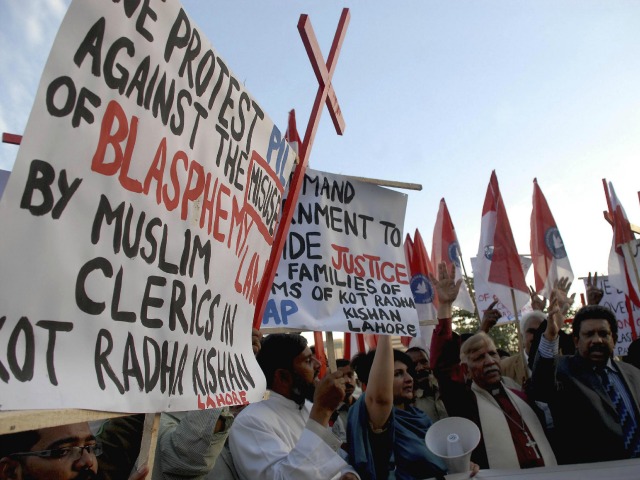Rufin Anthony, the bishop of Islamabad, has called the recent attack and burning of a young Christian couple on the basis of mere allegations “a mockery of the justice system.”
On November 4, Shahzad Masih and his pregnant wife Shama Bibia, the parents of four children, were stoned and then burned alive at a brick kiln in Pakistan. The two victims were lynched by an angry mob of hundreds of people stirred up by a local religious leader for allegedly burning pages of the Qur’an.
Bishop Anthony said that part of the blame falls to the culpable silence of Muslim leaders. “In the past,” he said, when mobs have taken the law into their own hands, “religious leaders have carefully refrained from expressing words of condemnation. In fact, they have practically encouraged personal vendettas. If appropriate measures had been taken in the past, this barbarism could have been averted.”
Cardinal Jean-Louis Tauran, the president of the Pontifical Council for Interreligious Dialogue, said he was “shocked and speechless” by the recent execution. “What is even worse,” he said, “is that it was carried out in the name of religion. Religion cannot justify a crime like this.”
“There is this law against blasphemy,” he went on, “which represents a problem: shouldn’t the international community intervene? I ask you: can we remain passive before crimes that are legitimized by religion?”
Tauran said that the first victims of this outrage are the Muslims themselves “because these crimes give Islam a terrible, very negative image. They should be the first to denounce them forcefully,” he said.
Nina Shea, a leading American religious freedom expert, has said that Pakistan’s blasphemy law “has become a license to kill.” Shea said that since the “2011 assassinations of Minorities Minister Shahbaz Bhatti and Punjab Governor Salman Taseer for criticizing the blasphemy law, no political figure in Pakistan dare raise his voice.”
Father Bonnie Mendes, a local priest and activist, warned, “As long as the murderers get away unpunished, these actions will continue to happen.”
The Ulema Council of Muslim scholars of Pakistan has called for an impartial inquiry into the episode, blaming local police for negligence. In a statement, the Council president, Muhammad Tahir Ashrafi, condemned the violence and expressed “deep sorrow for the incident,” which “would not have happened if the local police had not shown negligence.”
If the couple was really guilty, the statement asks, “why did the police not arrest them after complaints from local residents?” And if they were not guilty, “why were they not given immediate protection, in view of the enraged reaction of the people?”
So far, the police have stopped about forty people for questioning, but no official charges have been filed.
Since its inception, the blasphemy law has been applied with certain regularity. In 2012, a teenage Christian girl with Down syndrome, Rimsha Masih, was arrested under the blasphemy laws and released on bail. She and her family had to be relocated because of threats against them.
In 2011, two politicians – Salmaan Taseer, a Muslim, and Shahbaz Bhatti, a Catholic – were assassinated for opposing the blasphemy laws.
It was reported Friday morning that the governor of Punjab, Shahbaz Sharif, brother of Pakistan’s Prime Minister Nawaz, visited surviving relatives of the couple and promised the family an indemnification of 5 million rupees, or a little under $49,000.

COMMENTS
Please let us know if you're having issues with commenting.